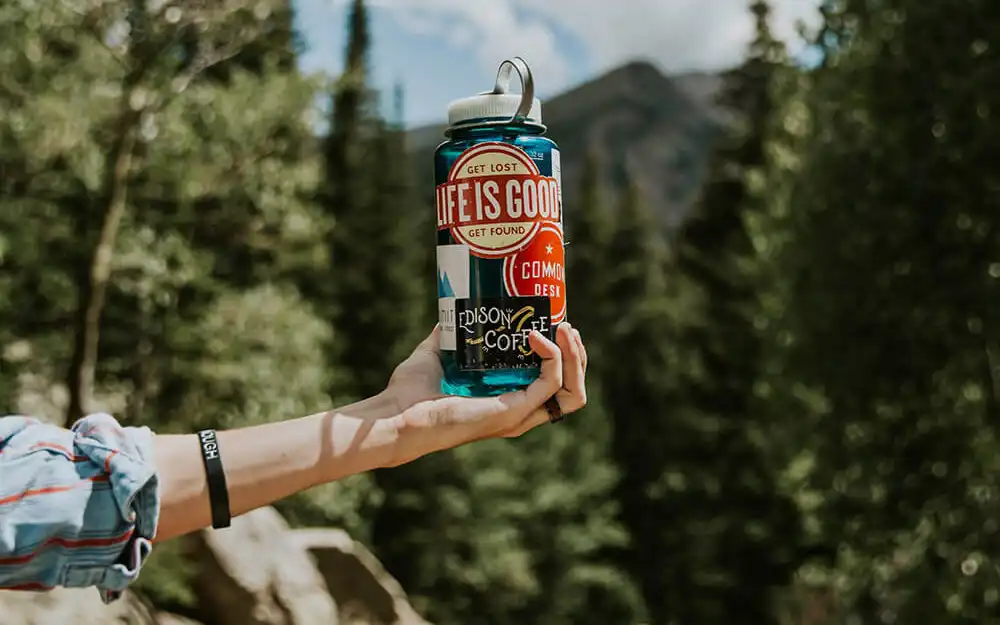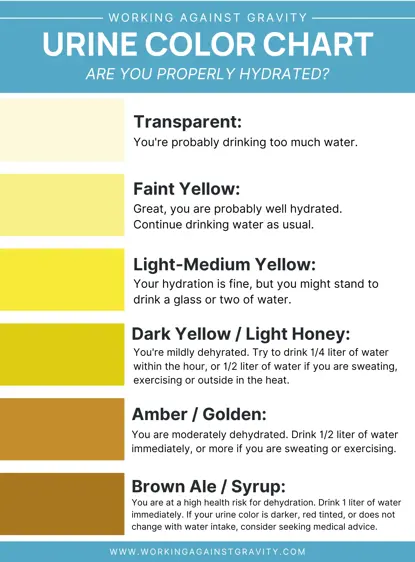
How much water should I drink?
As Working Against Gravity coaches, we always get this question. Although the answer is somewhat personalized, there are general hydration rules and guidelines we can all follow to ensure we’re drinking enough.
Before we discuss exactly how much water you should drink to reach your weight loss or performance goals (and stay healthy along the way), we need to explain why hydration is so vital.
Why is Hydration Important?
Water is essential in proper body functioning, so learning to hydrate is vital to improving performance, mood, energy, and body composition. You lose water through the excretion of bodily fluids like sweat and urine, which must be replaced by the liquids and foods you consume.
Advertisement
Monitoring your intake and remaining adequately hydrated throughout the day is essential to performing and feeling your best. Water has many excellent health benefits (plus, it's the most macro-friendly beverage around).
The Health Benefits of Water
- Regulating body temperature
- Distributing essential vitamins and minerals throughout the body
- Aiding digestion
- Flushing out nasty toxins
- Increasing feelings of satiety (aka you feel fuller)
- Aiding in weight loss
- Promoting muscle growth and functioning
- Lubricating of joints
- Improving energy, focus, and clarity
- Boosting your immune system
- Speeding up your metabolism
How Much Water Do I Need Each Day?
Your hydration needs are based on a host of factors, including weight, age, gender, location (namely, humidity and altitude), and exercise style.
Larger people in humid conditions exercising regularly will need more water than smaller, sedentary people in cooler climates.
Advertisement
That being said, a great starting point for most people is 100oz/day at a minimum. At WAG, we generally recommend about 1oz per pound of body weight (or more), especially for athletes and those with weight loss goals.
If you're not ready to keep tabs on exact amounts, thirst is a great jumping-off point. You can also use the color of your urine to assess your hydration status.

Hydration Needs for Athletes
When we say “athlete,” we mean anyone exercising on purpose and working up a sweat.
Advertisement
Exercise increases your hydration needs—especially if you’re hydrating in warmer, humid climates. But much like general hydration needs, your needs before, during, and after exercise depend on the same host of factors.
So, how much water should you drink as an athlete?
The best way to determine hydration needs is to assess your weight loss during exercise and drink 16-24oz of water for every pound lost. Increasing your liquid intake both before and after exercise is also essential. Generally, this comes out to be an extra 50-100oz of water above your regular intake.
A Quick Note on Electrolytes
Sweat and urine contain more than just water; they include minerals and electrolytes like sodium, chloride, potassium, magnesium, and calcium.
This means replenishing electrolytes is important when thinking about hydration—especially for athletes. Try sipping on Gatorade or Powerade during your workout (go sugar-free if you need something more macro-friendly). You can also add an electrolyte packet like Drink LMNT or Liquid IV to your water to ensure you replenish adequately.
Advertisement
Hydration and Weight Loss
Staying adequately hydrated is an important (and often overlooked) factor in weight loss and body composition change. Understanding why may give you a little motivation to grab your water bottle, and use the tips included at the end of this article to stay on top of it.
Proper Hydration Improves Performance
You push harder in your workouts when your body is primed for training and recovery. When you’re working hard, you’ll burn more fat and build and maintain more muscle, both impacting body composition.
Water Helps Regulate Hunger and Appetite
Did you know that your brain registers thirst as hunger when you’re mildly dehydrated? If you find yourself thinking, “I’m hungry, but I just ate.” your body may be asking you to start sipping. Opting for the water your body needs over that second handful of chips’ll consume fewer calories and keep hunger at bay. Replacing high-calorie drinks with water will also help with weight loss!
Hydration May Improve Metabolism
Some studies show that drinking enough water increases thermogenesis (heat production in the body), which increases metabolism and may help with weight loss and maintenance.
Tips to Increase Your Water Intake
We get it; drinking enough water can be tough. Here are some tips to increase your intake:
Advertisement
- Keep it obvious: Place your bottle on your desk to keep water top of mind.
- Make it a part of your routine: Drink 8-16oz of water when you wake up before reaching for your coffee and with every meal.
- Keep it convenient: Always carry a water bottle with you no matter where you go—in your handbag, manbag, or gym bag!
- Set reminders: Use an alarm on your phone or download a water-tracking app like Plant Nanny, Water Logged, or My Water Balance
- Make it fun: Drink through a straw and spice it up with refreshing mint, cucumber, lemon, or lime. You can also try adding water enhancers like MIO or an electrolyte packet.
- Switch up: Try sparkling water for a change of pace—just keep it under control since overdoing it can cause more bloating and digestive discomfort.
- Eat it: Consume fruits and veggies with a higher water content, such as watermelon, strawberries, lettuce, cucumbers, and peppers.
Drinking enough water will make a noticeable difference in how you perform in your workouts and how you feel on a daily basis It has a direct impact on weight loss (and weight maintenance) so if your goal is to lean out, hydration could be the missing piece.
At WAG nutrition, our coaches are trained to look at many aspects of health from what you eat and drink to your training style, sleep quality, and the way you manage stress. If you want some support putting together the puzzle pieces of your health, learn more about working with a 1:1 WAG Nutrition Coach.
Schedule a Free Intro Call
Working Against Gravity has led the macro tracking and health space for over a decade. Our team doesn’t just understand the science of nutrition—we’ve spent years mastering the art of tailoring it to fit your life. That means no cookie-cutter plans, just real strategies that have worked for over 30,000 people.
Schedule a free call with our team to learn how working with a 1-on-1 WAG coach will help you reach your goals.



